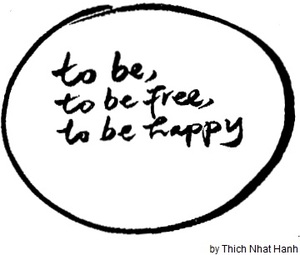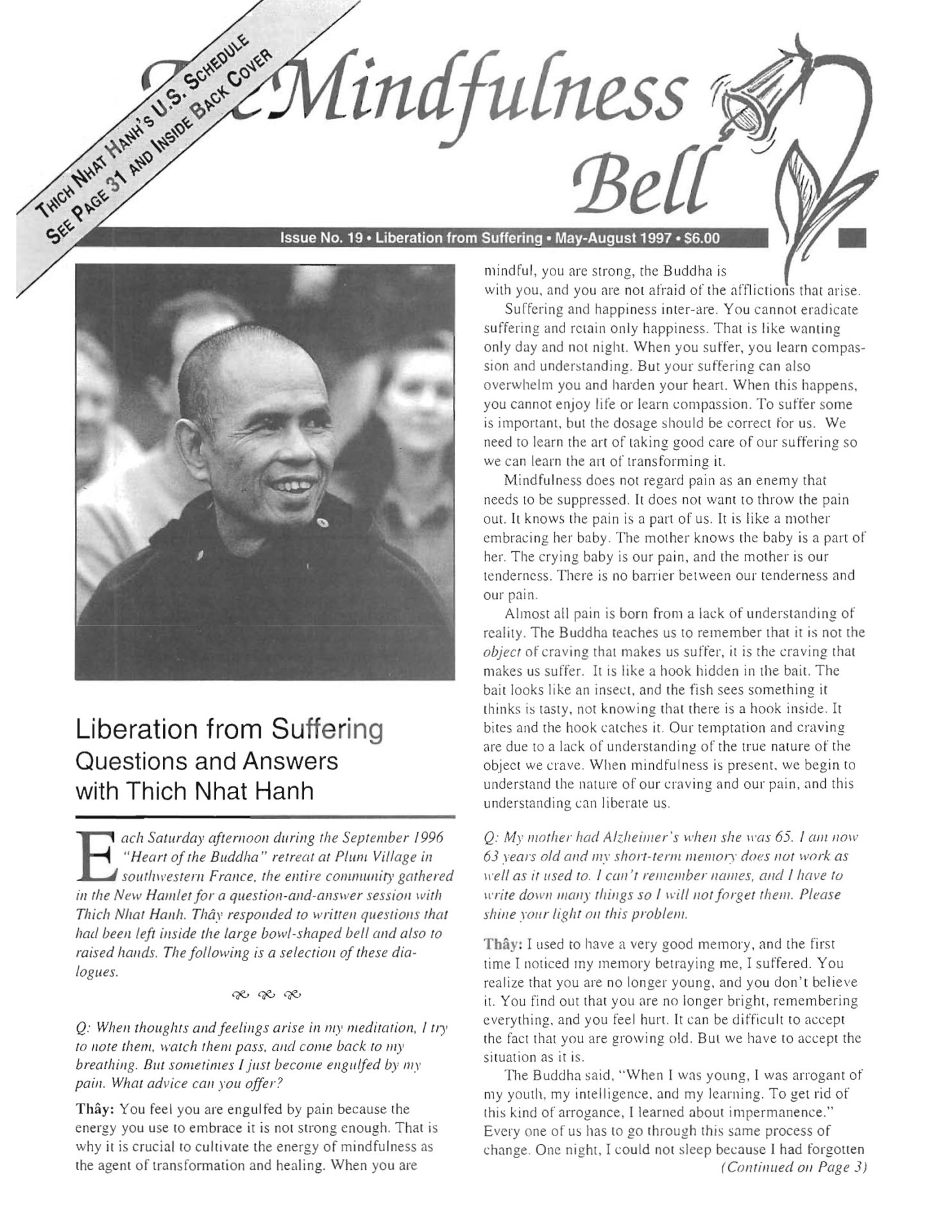By Jarvis Masters
When I awoke that early morning in my cell to begin my daily meditation practice, I tried to envision myself as a peace activist in the rough neighborhood of my life in prison. The night before, the cell adjacent to mine was filled with the raging screams and yells of a new inmate. I had dreamed of hearing loud mumbling voices in my deep sleep, but refused to awaken, to lose that very comfortable place that made sleeping on a hard concrete prison bunk easy.
By Jarvis Masters
When I awoke that early morning in my cell to begin my daily meditation practice, I tried to envision myself as a peace activist in the rough neighborhood of my life in prison. The night before, the cell adjacent to mine was filled with the raging screams and yells of a new inmate. I had dreamed of hearing loud mumbling voices in my deep sleep, but refused to awaken, to lose that very comfortable place that made sleeping on a hard concrete prison bunk easy.
Now, in the light of dawn appearing from the window opposite' my cell across the tier, I quietly placed my folded blankets on the cold floor of my cell. The loud voice of my new neighbor began to scream again. "I kill you ... I kill you all you damn son of bitches if y'all don't let me out of here!" He went on yelling like that to no one. I could see in my mind his hands taking hold of his cell bars and shaking and rattling them, like a storm, so loud I was certain this thunder of human rage could be heard throughout the housing unit. The noise caused me to wonder if I could be just as determined to sit with my meditation practice as I must have been to sleep through all of this since the time my neighbor had been moved into his cell. I remembered when my teacher, Chagdud Rinpoche, had sent me a transcription of one of his Dharma talks where he mentioned a particular kind of joy in meditating at airports while waiting for the many flights on his schedule. I wished I could remember why he liked this! I decided the solution could be found in Rinpoche's saying that there was no time to lose to invoke the practice of Dharma. I smiled to myself, wanting to try this kind of meditation. I had always been able to meditate within ear range of lots of noise, but never anything as loud and as close as the steel bars which vibrated like a jumbo jet breaking through the skies.
I was only minutes into my practice when my new neighbor called over to me. "Hey, dude in cell number 15," he shouted. "Save me half of that damn cigarette."
Huh? I thought, my mantra interrupted. What cigarette? I haven't smoked in years, I thought, at the same time trying to get my mind back to meditating. I smiled, imagining my teacher being asked such a question while he was sitting at the airport. No, no one would dare! I chuckled silently to myself. Then I began to smell the fumes of someone smoking in one of the cells not far from me. The smoking of my fellow inmates brought a certain morning scent to the air to which I had become so accustomed that on my best days, I would simply accept it as my prison-brand of incense. With each lit cigarette, the air shaped itself into a smoky altar to meditate around.

When I felt the wall between my new neighbor and myself move almost like in an earthquake, I was tempted to half jokingly ask him to knock off the banging and to invite him to sit in meditation with me instead. But this would have only made me a target for his rage and possibly would have so insulted him that his mission in life would become to make our adjacent living situation pure misery for both of us. And I didn't want this.
"Hey dude in cell number 15," my neighbor shouted again, this time pounding on the wall between us. "Let me have a few tokes of that cigarette man, I know you smokin' over there. I know you hear me, man!"
"Hey, hey!" I responded loudly, finally having enough and by now being totally convinced that I was no Rinpoche. "Man! You don't need to shout and go on beating the wall like a damn fool!" I stood up and stepped to my cell bars.
"Man, whatever your name is: that is not me smoking. I don't smoke. I haven't been smoking in years. And even if I did smoke, check: the way you are going about shouting and beating on that poor wall all this morning which has been trying to mind its own business, just like me, man—I wouldn't give you jackshit, ok?"
"Ah, man." My neighbor tried to calm his voice, "They call me Bosshog. And all I want is a motherfuckin' smoke, you know?"
"Well, I'm Jarvis," I replied, "and all I want is my freedom. Believe me, Bosshog, this is not to say that I want it more than you want a cigarette right about now, because I know what cigarettes can make you feel. But by beating on the wall like you have, you're taking what little freedom I have away from me, and that ain't right, you know?"
"Okay, well, do you think you can find me a cigarette?" my neighbor pleaded, '''cause I swear to God, man, I've been needing a cigarette all morning, like poor folk in hell need ice water!"
I laughed. I liked the way Bosshog seemed to think only poor people needed ice water in hell. As for a cigarette, I always keep extra things in my cell for people like Bosshog. I would collect old magazines and novels and purchase inexpensive soap, toothpaste, and smoking tobacco for new inmates, who may have none of these things. I had vowed to do this seventeen years ago when I had arrived at San Quentin and had to use kitchen butter from my breakfast tray to treat my badly chapped dry skin, because I had no funds to purchase lotion from the prison commissary.
"Yeah, I think I can find you a bit of tobacco and some rolling papers," I told him. I sensed from my many years of having neighbors of all sorts that he was just one of so many youngsters over-flooding the prison system for smoking crack or for violating their parole.
"I'll find you a bit of tobacco," I repeated, "but only if you stay cool and don't go screaming and rattling your cell bars and beating the walls, disturbing the peace on the tier again. Is that a deal?"
Long seconds passed. Bosshog was taking his word seriously. This made him a rare breed, since few new prisoners would take even as much as a whole second before saying anything for a free cigarette. "Yeah, man," he finally answered, "you drive a hard bargain, but you got a deal! I'll keep it all on cool, my word, man."
"Okay, give me a minute." I walked to the back of my cell, rummaging in the box underneath my bunk where I keep the can of tobacco. I was surprised to find more than half of the can left. I had no intention of giving it all to Boss. There was a likelihood that other newcomers would be needing some too. Also, the long seconds Boss had taken before deciding to come to terms with our agreement probably meant that it would be a struggle for him to keep his end of the bargain. Rationing out the tobacco would keep him at bay.
I took a pinch of tobacco and looked around my cell for some paper. A long time ago, a friend had photocopied and sent me Thich Nhat Hanh's book Being Peace. Some time afterwards, I received the actual book, so I no longer needed the photocopied pages. I reckoned it wouldn't hurt to wrap the tobacco into one of them, and who knows, I thought wistfully, ol' Thich Nhat Hanh might appeal to the Bosshog-one single page at a time. "Hey Boss," I asked, "do you have a fishline over there!"
"I just found this one under the bunk. Your last neighbor must have left it." He quickly threw the fishline in front of my cell. I retrieved it then tied on the rolled-up piece of paper with the tobacco inside and watched him pull it in.
"Man, right-on! Righteous!" he exclaimed happily. "I really appreciate all this smoke!"
"No problem. Perhaps I can send you more in a day or so, you know?"
"Oh, this is cool, real cool!" said Bosshog.
The bright sun shining through the window on the wall said that there wasn't much left of the morning to sit in meditation, but it also ushered in a quiet feeling of having spent time as a simple kind of engaged peace activist. For days that turned into months, I continued sending Boss his daily supply of tobacco. And gradually, in his own way, he came to adore Thich Nhat Hanh through the writings that he received along with his tobacco. It was like adopting a Sangha brother who was still a bit off his rocker. He would try his very best, but drew the line at formal sitting meditation. "My word," he would say, "to wake up in the early morning hours to go on some ol' meditation trip with you. No way!"
When Bosshog was finally released from San Quentin some 18 months later, he stood in front of my cell before leaving, and he and I smiled at each other, trying not to say good-bye. Almost in the same breath, we repeated what had become his favorite mantra whenever he felt he was about to blow his top: "Man, man ... if we are peaceful, if we are happy, we can smile, and everyone in our family, our entire society, will benefit from our peace."
Jarvis Masters is a death row inmate housed in San Quentin's Adjustment Center, a maximum-security housing unit for both death row and other high-security inmates. He is currently working on a collection of essays on his practice, due to be published early next year

